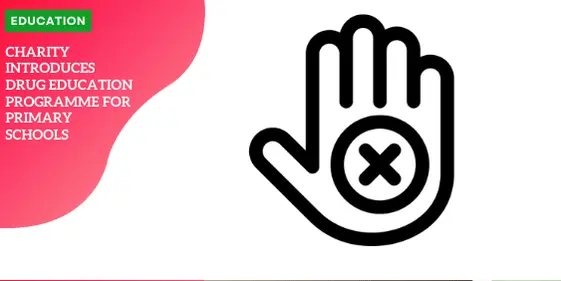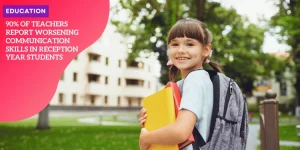Charity Introduces Drug Education Programme for Primary Schools

In an effort to prepare primary school children for responsible decision-making regarding drugs, a prominent charity has announced the second year of its drug education programme.
Hope UK, headquartered in Kettering, Northamptonshire, launched this initiative last year with the objective of assisting Year 6 pupils in acquiring essential life skills as they transition from primary to secondary school.
According to Mary Deller, a representative from the charity, this period in a child’s life is incredibly pivotal, and equipping them with the right tools and knowledge is paramount.
Hope UK, a charity with an extensive history spanning nearly 170 years, relies on the dedication of volunteers to run its various courses.
The junior scheme, tailored specifically for young children, debuted last year across five primary schools in Northamptonshire.
Reflecting its initial success, the programme is expanding this year, welcoming back the original participants along with two additional schools.
Addressing Critical Areas: Drug Awareness, First Aid, and Healthy Eating
The drug education programme designed by Hope UK encompasses several critical areas aimed at promoting a well-rounded understanding of health and safety among young pupils.
The topics covered include drug awareness, first aid, and healthy eating.
These subjects are vital in ensuring that children are not only knowledgeable about the dangers of drug use but are also equipped with the skills to maintain their overall health and well-being.
Volunteer Mary Deller explained that the charity draws inspiration from a national scheme for their program but localizes it to better resonate with and benefit the community.
By doing so, relationships with local entities are strengthened, fostering a more cohesive and supportive environment for the children.
Agencies such as the police, fire service, and the National Health Service (NHS) collaborate with Hope UK to deliver the educational content effectively.
Collaborative Efforts with Local Agencies
The involvement of local agencies is a fundamental component of the programme, providing children with a diverse and comprehensive learning experience.
The police, fire services, and NHS bring their unique perspectives and expertise to the table, supporting the children in navigating their journey towards secondary education.
This collaborative approach ensures that the educational content is not only informative but also practical and relatable, thus enhancing its impact.
In elaborating on the programme’s structure, Mary Deller mentioned that it is spread across three days in the month of July, with schools participating either in the morning or in the afternoon sessions.
The timing is carefully chosen to align with the end of the primary school year, thus ensuring that the knowledge imparted is fresh as pupils gear up for the significant transition to secondary school.
Engaging Real-Life Scenarios to Foster Decision-Making Skills
A core element of the programme is its focus on real-life scenarios, designed to engage pupils actively and test their ability to make responsible decisions in a safe and controlled environment.
By simulating real-life situations, the programme allows children to practice and refine their decision-making skills.
This experiential learning method is highly effective in reinforcing the lessons taught and in helping children internalize the knowledge gained.
Mary Deller emphasized the importance of Year 6 as a critical point in education, a time when children are on the brink of substantial changes in their academic and social lives.
Practical experiences provided through the programme are intended to open the pupils’ eyes to various important aspects that will play a crucial role as they grow older.
It is hoped that by participating in these scenarios, children will develop a keen sense of responsibility and awareness that will serve them well in future encounters with drugs and other challenges.
Building a Supportive Community Network
One of the unique strengths of Hope UK’s initiative is its ability to create lasting connections within the community.
The involvement of local volunteers and agencies means that the programme is not just a one-off intervention but part of a broader, ongoing support system for the children.
Parents, teachers, and local authorities all play a role in reinforcing the messages delivered during the sessions, thus providing a more integrated network of support.
Feedback from the schools and volunteers involved in the first year has been overwhelmingly positive. Many have praised the programme for its engaging content and its ability to hold the attention of the pupils.
The interactive nature of the sessions, along with the relatable real-life scenarios, has been particularly well-received.
Looking Forward: Expansion and Development
Looking forward, Hope UK plans to continue expanding the programme, potentially bringing it to more schools within Northamptonshire and beyond.
The goal is to have a wider reach and impact, ensuring that more children benefit from the valuable life skills and knowledge imparted through the sessions.
While the core elements of the programme are expected to remain the same, there will be continuous evaluations and adjustments based on feedback and changing needs.
This adaptive approach ensures that the programme stays relevant and effective, providing the best possible educational experience for the pupils.
Conclusion
Hope UK’s drug education programme stands as a testament to the power of community-driven initiatives in shaping the future of young learners.
By collaborating with local agencies and volunteers, the charity has created a robust framework that not only educates but also supports children as they navigate a critical phase in their lives.
As the programme enters its second year and expands its reach, it carries with it the hope and promise of making a lasting difference in the lives of many more young children, guiding them towards making informed, responsible choices.





